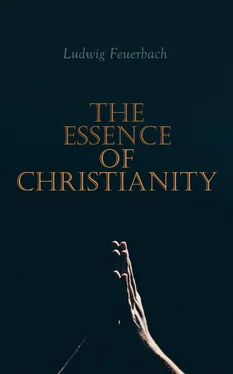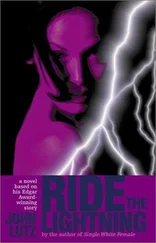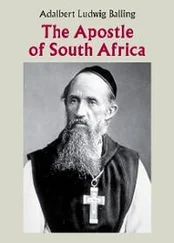What, then, is the nature of man, of which he is conscious, or what constitutes the specific distinction, the proper humanity of man? 2Reason, Will, Affection. To a complete man belong the power of thought, the power of will, the power of affection. The power of thought is the light of the intellect, the power of will is energy of character, the power of affection is love. Reason, love, force of will, are perfections—the perfections of the human being—nay, more, they are absolute perfections of being. To will, to love, to think, are the highest powers, are the absolute nature of man as man, and the basis of his existence. Man exists to think, to love, to will. Now that which is the end, the ultimate aim, is also the true basis and principle of a being. But what is the end of reason? Reason. Of love? Love. Of will? Freedom of the will. We think for the sake of thinking; love for the sake of loving; will for the sake of willing— i.e. , that we may be free. True existence is thinking, loving, willing existence. That alone is true, perfect, divine, which exists for its own sake. But such is love, such is reason, such is will. The divine trinity in man, above the individual man, is the unity of reason, love, will. Reason, Will, Love, are not powers which man possesses, for he is nothing without them, he is what he is only by them; they are the constituent elements of his nature, which he neither has nor makes, the animating, determining, governing powers—divine, absolute powers—to which he can oppose no resistance. 3
How can the feeling man resist feeling, the loving one love, the rational one reason? Who has not experienced the overwhelming power of melody? And what else is the power of melody but the power of feeling? Music is the language of feeling; melody is audible feeling—feeling communicating itself. Who has not experienced the power of love, or at least heard of it? Which is the stronger—love or the individual man? Is it man that possesses love, or is it not much rather love that possesses man? When love impels a man to suffer death even joyfully for the beloved one, is this death-conquering power his own individual power, or is it not rather the power of love? And who that ever truly thought has not experienced that quiet, subtle power—the power of thought? When thou sinkest into deep reflection, forgetting thyself and what is around thee, dost thou govern reason, or is it not reason which governs and absorbs thee? Scientific enthusiasm—is it not the most glorious triumph of intellect over thee? The desire of knowledge—is it not a simply irresistible, and all-conquering power? And when thou suppressest a passion, renouncest a habit, in short, achievest a victory over thyself, is this victorious power thy own personal power, or is it not rather the energy of will, the force of morality, which seizes the mastery of thee, and fills thee with indignation against thyself and thy individual weaknesses?
Man is nothing without an object. The great models of humanity, such men as reveal to us what man is capable of, have attested the truth of this proposition by their lives. They had only one dominant passion—the realisation of the aim which was the essential object of their activity. But the object to which a subject essentially, necessarily relates, is nothing else than this subject’s own, but objective, nature. If it be an object common to several individuals of the same species, but under various conditions, it is still, at least as to the form under which it presents itself to each of them according to their respective modifications, their own, but objective, nature.
Thus the Sun is the common object of the planets, but it is an object to Mercury, to Venus, to Saturn, to Uranus, under other conditions than to the Earth. Each planet has its own sun. The Sun which lights and warms Uranus has no physical (only an astronomical, scientific) existence for the Earth; and not only does the Sun appear different, but it really is another sun on Uranus than on the Earth. The relation of the Sun to the Earth is therefore at the same time a relation of the Earth to itself, or to its own nature, for the measure of the size and of the intensity of light which the Sun possesses as the object of the Earth is the measure of the distance which determines the peculiar nature of the Earth. Hence each planet has in its sun the mirror of its own nature.
In the object which he contemplates, therefore, man becomes acquainted with himself; consciousness of the objective is the self-consciousness of man. We know the man by the object, by his conception of what is external to himself; in it his nature becomes evident; this object is his manifested nature, his true objective ego . And this is true not merely of spiritual, but also of sensuous objects. Even the objects which are the most remote from man, because they are objects to him, and to the extent to which they are so, are revelations of human nature. Even the moon, the sun, the stars, call to man Γνῶθι σεαυτόν. That he sees them, and so sees them, is an evidence of his own nature. The animal is sensible only of the beam which immediately affects life; while man perceives the ray, to him physically indifferent, of the remotest star. Man alone has purely intellectual, disinterested joys and passions; the eye of man alone keeps theoretic festivals. The eye which looks into the starry heavens, which gazes at that light, alike useless and harmless, having nothing in common with the earth and its necessities—this eye sees in that light its own nature, its own origin. The eye is heavenly in its nature. Hence man elevates himself above the earth only with the eye; hence theory begins with the contemplation of the heavens. The first philosophers were astronomers. It is the heavens that admonish man of his destination, and remind him that he is destined not merely to action, but also to contemplation.
The absolute to man is his own nature. The power of the object over him is therefore the power of his own nature. Thus the power of the object of feeling is the power of feeling itself; the power of the object of the intellect is the power of the intellect itself; the power of the object of the will is the power of the will itself. The man who is affected by musical sounds is governed by feeling; by the feeling, that is, which finds its corresponding element in musical sounds. But it is not melody as such, it is only melody pregnant with meaning and emotion, which has power over feeling. Feeling is only acted on by that which conveys feeling, i.e. , by itself, its own nature. Thus also the will; thus, and infinitely more, the intellect. Whatever kind of object, therefore, we are at any time conscious of, we are always at the same time conscious of our own nature; we can affirm nothing without affirming ourselves. And since to will, to feel, to think, are perfections, essences, realities, it is impossible that intellect, feeling, and will should feel or perceive themselves as limited, finite powers, i.e. , as worthless, as nothing. For finiteness and nothingness are identical; finiteness is only a euphemism for nothingness. Finiteness is the metaphysical, the theoretical—nothingness the pathological, practical expression. What is finite to the understanding is nothing to the heart. But it is impossible that we should be conscious of will, feeling, and intellect, as finite powers, because every perfect existence, every original power and essence, is the immediate verification and affirmation of itself. It is impossible to love, will, or think, without perceiving these activities to be perfections—impossible to feel that one is a loving, willing, thinking being, without experiencing an infinite joy therein. Consciousness consists in a being becoming objective to itself; hence it is nothing apart, nothing distinct from the being which is conscious of itself. How could it otherwise become conscious of itself? It is therefore impossible to be conscious of a perfection as an imperfection, impossible to feel feeling limited, to think thought limited.
Читать дальше












